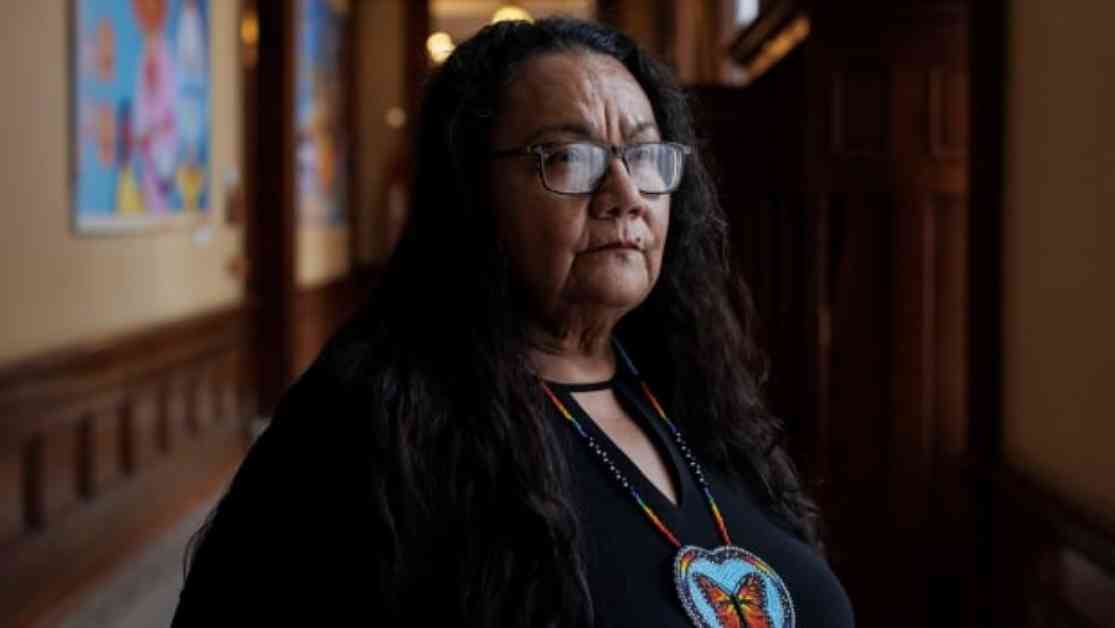Six First Nations in northern Ontario are challenging the province’s Mining Act, arguing it violates their treaty and Charter equality rights. The legal challenge, spearheaded by Chief June Black of Apitipi Anicinapek Nation, aims to address growing concerns over potential water contamination from escalating mining exploration on traditional lands. The notice of application was filed in the Superior Court of Justice, marking a significant step in the fight for Indigenous rights and environmental protection.
First Nations Taking a Stand
Chief June Black of Apitipi Anicinapek Nation boldly stated, “These are not your lands to give away, Ontario,” during a news conference at Queen’s Park. The sentiment was echoed by representatives from other First Nations, including Aroland First Nation, Attawapiskat First Nation, Fort Albany First Nation, Ginoogaming First Nation, and Kitchenuhmaykoosib Inninuwug. These communities are united in their efforts to challenge the Ontario Mining Act, which they argue disregards their inherent rights and responsibilities as stewards of the land.
The legal battle is not a new one for Indigenous groups in Ontario. Grassy Narrows First Nation filed a similar legal challenge last month, highlighting the ongoing struggle to protect traditional territories from exploitation. The legal actions filed by these First Nations underscore the deep-seated issues surrounding resource extraction on Indigenous lands and the need for meaningful consultation and consent.
Fighting for Treaty and Constitutional Rights
The legal challenges against the Ontario Mining Act are grounded in the assertion of treaty and Charter rights. The Treaty 9 communities involved in the legal action are being represented by Woodward and Company Lawyers LLP, a firm specializing in advocating for First Nations governments and organizations. The legal team is committed to upholding Indigenous rights and ensuring that the province respects its obligations under international agreements such as the United Nations Declaration on the Rights of Indigenous Peoples.
The crux of the legal argument revolves around the lack of meaningful consultation and consent in the mining approval process. The free-entry mining system in Ontario allows prospectors to stake claims on Indigenous lands without proper engagement with affected communities. This system has been criticized for prioritizing industry interests over Indigenous rights and environmental protection. The First Nations challenging the Mining Act are seeking changes that would ensure their treaty and constitutional rights are upheld in the decision-making process.
A Legacy of Environmental Advocacy
The fight against the Ontario Mining Act is not just a legal battle; it is a matter of environmental stewardship and cultural preservation. Jacob Ostaman, director of lands and environment for Kitchenuhmaykoosib Inninuwug (KI), spoke of the community’s long history of environmental advocacy and the sacrifices made to protect their traditional lands. The legacy of the “KI 6,” individuals who were imprisoned in 2008 for protesting against mining on their territory, serves as a reminder of the ongoing struggle for Indigenous rights and environmental justice.
Chief June Black emphasized the sacred connection Indigenous communities have with the land and water, expressing deep concerns over potential contamination from mining activities. The protection of water sources, essential for cultural practices and community well-being, is a central issue in the legal challenge against the Mining Act. The First Nations involved are committed to upholding their responsibility to care for the land as entrusted to them by their ancestors.
As the legal battle unfolds, the chiefs of the First Nations continue to face challenges posed by mining claims on their lands. Despite efforts to engage with the provincial government, consultation processes have been inadequate, leaving Indigenous communities feeling marginalized and ignored. The struggle for meaningful consultation and consent remains a key priority for the First Nations taking a stand against the Ontario Mining Act.
In conclusion, the legal challenges against the Ontario Mining Act represent a pivotal moment in the fight for Indigenous rights and environmental protection. The First Nations involved are united in their commitment to upholding treaty and constitutional rights, challenging the status quo of resource extraction on Indigenous lands. The outcome of these legal actions will have far-reaching implications for the future of mining regulation in Ontario and the recognition of Indigenous sovereignty over traditional territories.




















